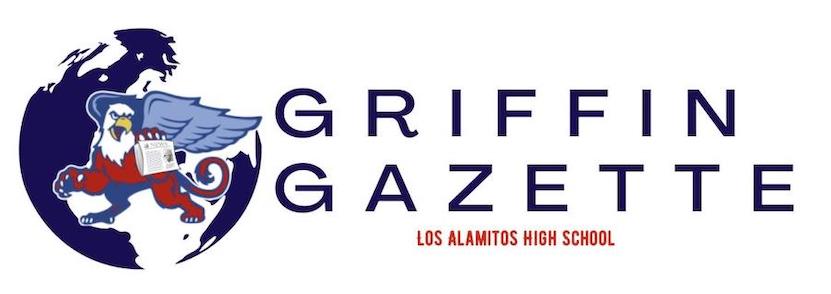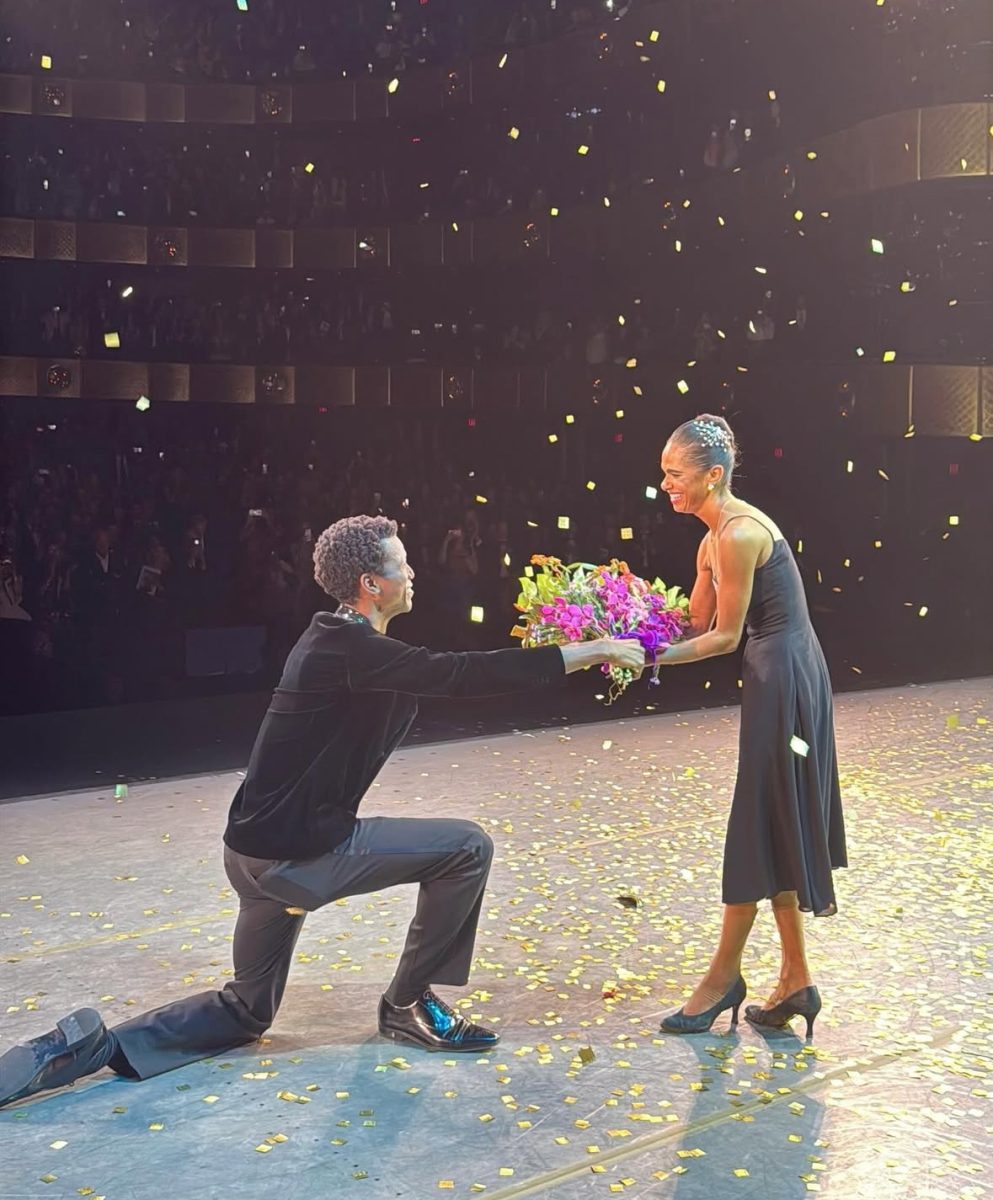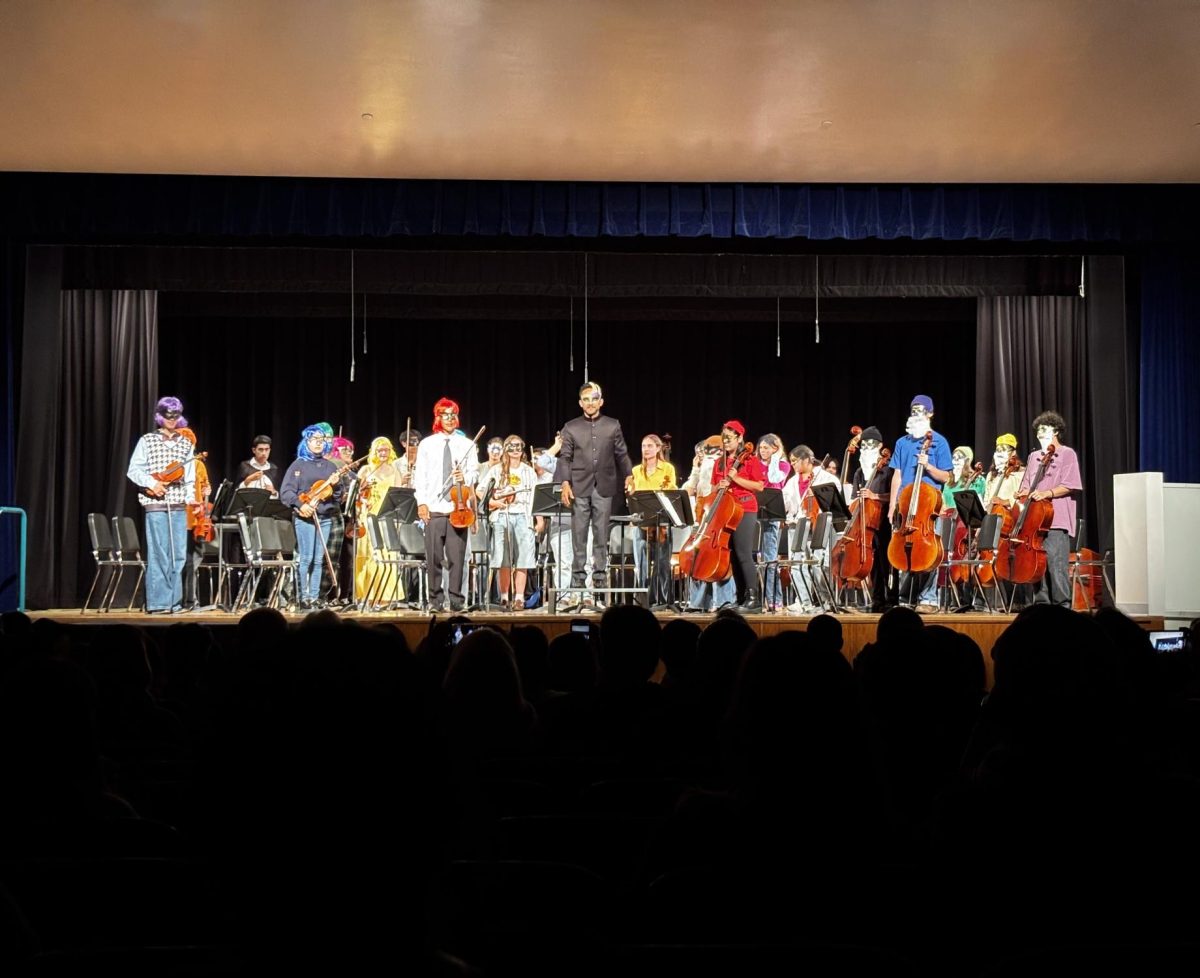Class spotlight: Mythology and Folklore
Mythology and Folklore is a dynamic and interesting English elective taught by Mrs. Franzen.
Mrs. Franzen and her Mythology class in front of the Getty Villa.
November 9, 2022
This week, Griffin Gazette is taking a deep dive into the Mythology and Folklore class, which is an optional English elective. The course takes place only in the fall semester. Mostly seniors are enrolled, but it is offered to 10th to 12th grade students.
What is Mythology and Folklore?
Mrs. Franzen teaches Mythology and Folklore; she has been teaching Mythology since 1998.
“It is the study of ancient stories,” is how she described it. “All modern and contemporary stories are built from” mythological stories.
The class examines four different cultures’ mythologies in detail: Egyptian, Greek, Roman, and Scandinavian (Norse). It also mentions Latin American, Chinese, Hebrew, and African mythologies, but it does not take a deep dive into those cultures as it does with others. Mythology focuses on showing the connections between many different cultures, including modern culture.
“They [the cultures] all tie together,” Mrs. Franzen added. “It really shows how humans have a collective and unconscious mind.”
The class also gets very introspective about how philosophy connects to Greek mythology. Mrs. Franzen explained that the class explores the big questions like: “What is the origin of God? What happens when we die? Where do we come from?”
Also, the class involves a lot of unusual yet fun activities. For example, the class does a meet-up at the Getty Villa in Malibu. The Mythology class visits it every year in October to see authentic examples of art that they study in class. The Getty Villa is the largest collection of Greek and Roman art on the West coast; it is also a recreation of the Villa de Paperie, making it the only Roman-style Villa in the United States.
Moreover, Franzen herself has had previous opportunities to immerse herself in the world of Mythology. Over the summer of 2012, she was invited to Harvard to learn from Dr. Maria Tatar, the head of the Mythology and Folklore department.
“I incorporated many things that I learned from her into my mythology class and into Modern Lit,” Mrs. Franzen said.
Why take Mythology and Folklore?
Mythology and Folklore is not a typical English class.
“It is a class for students who like to see separate things come together and understand meaning across disciplines,” Mrs. Franzen described. “Mythology lives in conjunction with archaeology, language, sociology, word etymology, and so much more.”
The class provides an opportunity to clarify many of the things that are already incorporated in modern culture.
“We think we know who Achilles and Hercules are,” she elaborated, “but let’s take a closer look to understand them the way they are meant to be understood.”
“There’s so much art,” Mrs. Franzen added.
“The art provides a second layer of analysis for visual learners,” added senior Lexi Duarte-Pace.
Finally, despite the class being an English elective, there are no outside reads or any papers to write. This means that the class focuses on projects, in-class readings, and other fun assignments that other classes do not get the opportunity to do.
Griffin Gazette made a poll for all the Mythology students. The students mostly said that the class was fun and fulfilled their expectations.
“I was surprised how close-knit and comfortable the class is and how in-depth the conversations are,” noted Sofia Young, another senior.
“This is the most interesting class in my schedule and I always look forward to going to this class and learning,” another senior, Audrey Kranson, commented.
Overall, the Mythology and Folklore class is a fun exploration of many aspects of ancient and modern culture. It is an opportunity for students to examine art, literature, and stories in an engaging and exciting way.





